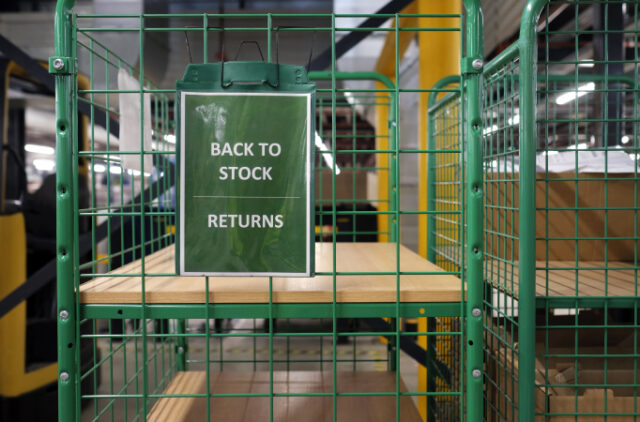
Retailers pour enormous resources into driving sales growth through marketing campaigns, product development, and customer acquisition strategies, but many completely ignore the silent revenue killer lurking in their operations: broken returns processes that quietly drain profits month after month.
The hidden costs pile up in ways that don’t show up clearly on profit and loss statements, from lost customers who never return after a bad experience to inventory that sits too long and requires markdowns. These losses happen gradually, making them easy to overlook until the cumulative damage becomes impossible to ignore.
Poor returns workflows are literally the silent sales killer that can cost retailers millions in lost revenue, damaged relationships, and operational inefficiencies. Here’s how these broken processes eat into your bottom line and why investing in returns management software isn’t optional anymore.
The Hidden Costs of Inefficient Returns
Labor hours spent manually processing returns add up to serious money when you multiply the time investment across thousands of transactions. Every return that requires multiple staff touches, email exchanges, or phone calls represents wages spent on work that should be automated.
Shipping fees and warehouse strain compound when returns take too long to process or require multiple attempts to get right. Rush shipping to replace items, storage costs for returned inventory, and the physical space required for manual sorting all eat into margins in ways that aren’t always obvious.
Fraud and abuse increase dramatically when returns systems rely on manual oversight instead of automated fraud detection. Organized return fraud schemes can cost retailers thousands of dollars per incident, and manual processes simply can’t catch sophisticated fraud patterns that software would identify immediately.
Customer Frustration Equals Lost Future Sales
Research consistently shows that shoppers check return policies before making purchases, with many abandoning carts when they discover complicated or expensive return requirements. Your returns policy isn’t just an operational detail, it’s a sales conversion factor that directly impacts revenue.
Confusing return processes, slow refund timing, or unexpected fees create frustration that drives customers away permanently. Each bad returns experience doesn’t just cost you that one transaction, it eliminates all the future revenue that customer would have generated over their lifetime relationship with your brand.
The math is sobering when you consider that losing just one customer who would have spent $1,000 annually for five years costs you $5,000 in lifetime value. Multiply that across hundreds or thousands of customers lost to poor returns experiences, and you’re looking at massive revenue impact that dwarfs the cost of better systems.
The Competitor Advantage
Retailers with seamless returns processes actively win customers away from competitors who make returning things difficult or expensive. Superior returns management becomes a legitimate competitive differentiator that influences purchase decisions and customer loyalty.
Easy returns have evolved into marketing advantages that smart retailers promote prominently in their advertising and on their websites. Features like branded return portals, instant store credit options, and mobile-friendly return labels become selling points that attract customers from less customer-friendly competitors.
When customers can choose between two similar retailers, the one with hassle-free returns often wins the business even if their prices are slightly higher. The peace of mind that comes from knowing returns will be easy removes risk from the purchase decision and tips the scales in your favor.
How Returns Software Stops the Revenue Leak
Modern returns management systems automate the entire process from initial request through refund processing, eliminating the delays and errors that frustrate customers and waste staff time. Automation means faster resolution times and lower operational costs per transaction.
Transparency features like real-time tracking and automated status updates keep customers informed throughout the returns process, reducing anxiety and the customer service calls that result when people don’t know what’s happening with their returns.
Data insights from returns software help identify and fix recurring product issues that drive unnecessary returns, reducing future return volumes while improving customer satisfaction. When you can spot patterns in return reasons, you can address root causes instead of just processing the symptoms.
Conclusion
Poor returns processes quietly drain millions in lost sales through customer churn, operational inefficiencies, and missed opportunities to retain revenue within your business. The cumulative impact of these hidden costs often exceeds what retailers spend on marketing and customer acquisition.
Returns management software for retailers provides the automation, transparency, and insights needed to plug these revenue leaks while creating competitive advantages that actually drive new business. The cost of implementing proper returns management is minimal compared to the losses from continuing with broken processes.
Fixing returns isn’t just an operational improvement, it’s a critical profitability strategy that protects existing revenue while creating opportunities for growth. Retailers who continue ignoring this silent sales killer are essentially choosing to let competitors steal customers and profits that should rightfully be theirs.
Disclaimer
The information contained in South Florida Reporter is for general information purposes only.
The South Florida Reporter assumes no responsibility for errors or omissions in the contents of the Service.
In no event shall the South Florida Reporter be liable for any special, direct, indirect, consequential, or incidental damages or any damages whatsoever, whether in an action of contract, negligence or other tort, arising out of or in connection with the use of the Service or the contents of the Service.
The Company reserves the right to make additions, deletions, or modifications to the contents of the Service at any time without prior notice.
The Company does not warrant that the Service is free of viruses or other harmful components












